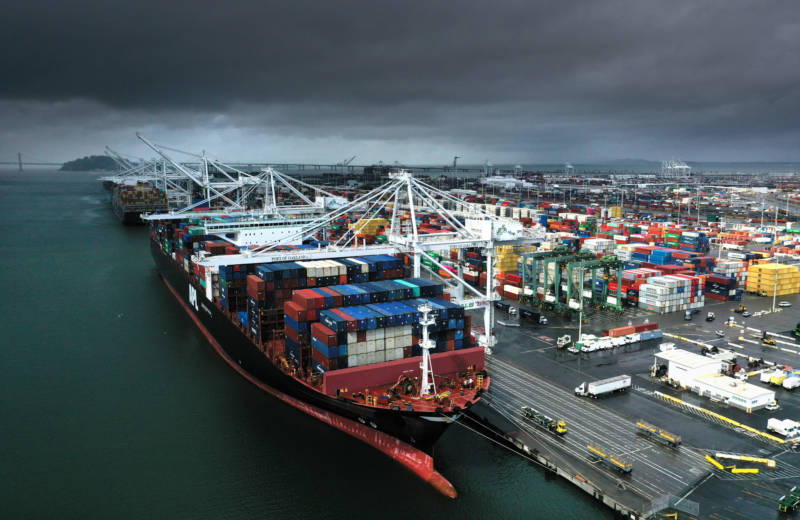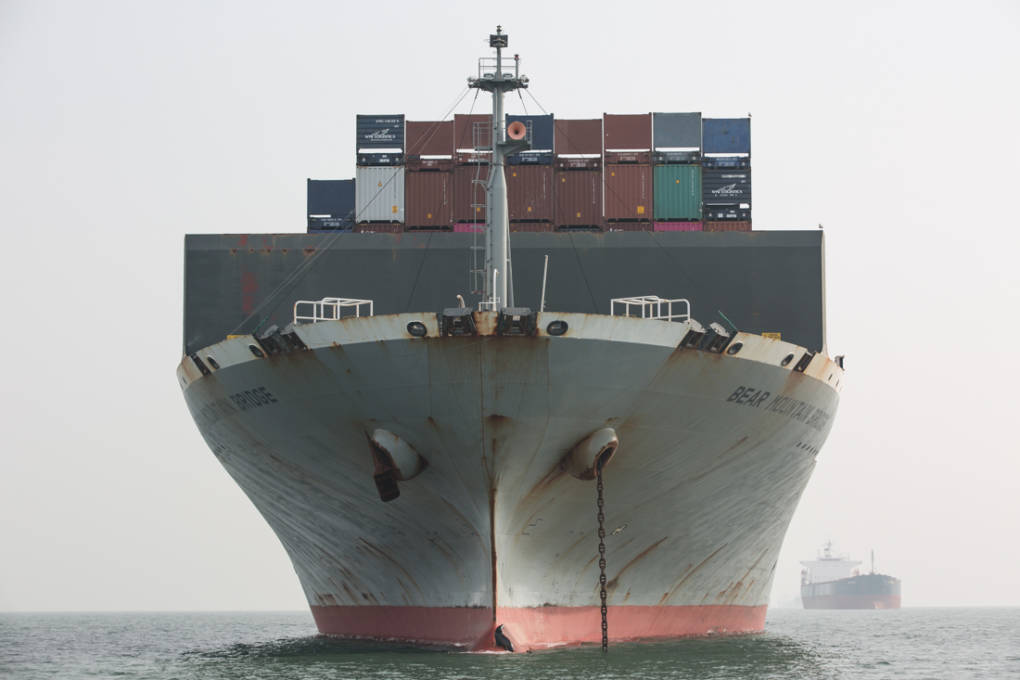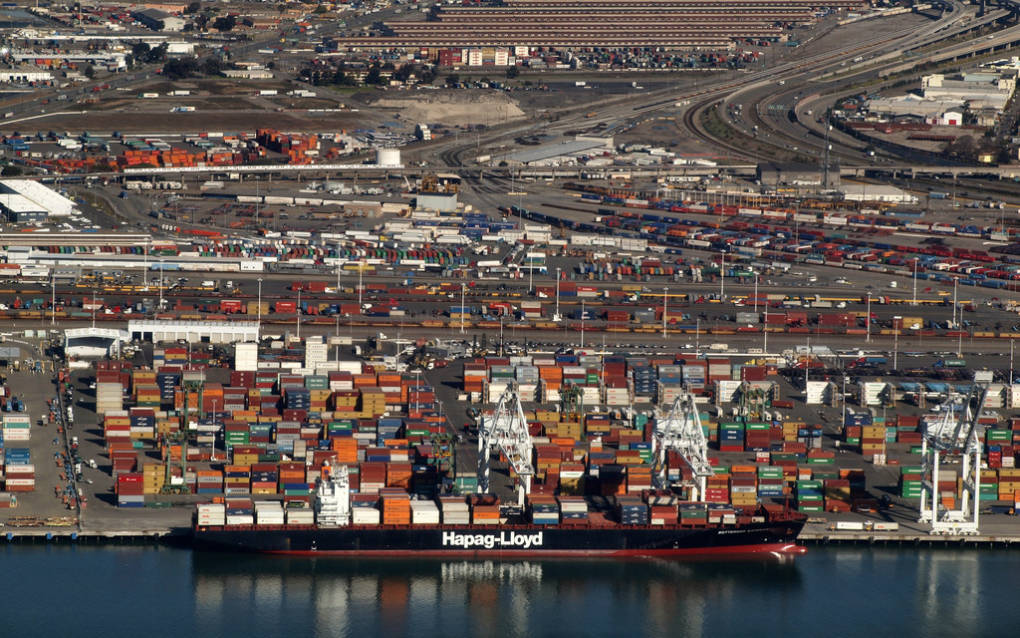The Port of Oakland experienced record import volume for April, with more than 80,000 containers coming in — the highest number in its 92-year history, the port said.
The surge in imports came ahead of a decision by the Trump administration on Friday to boost tariffs on $200 billion worth of goods coming from China — Oakland’s largest trading partner — to 25% from 10%.
Some experts attributed the increase in the Oakland port’s imports to tense trade talks between the U.S. and China, in which President Trump’s threat to raise tariffs — unless they reached a deal that would address U.S. concerns about Chinese business practices — loomed.
“If you’re going to be shipping something to the United States, you may as well get a little bit ahead of the potential tariffs rather than behind them,” Andrew Rose, a professor at UC Berkeley's Haas School of Business, said Thursday.
The port said its trade numbers predated U.S. warnings of increased tariffs on Chinese goods and attributed the gains mostly to strong consumer demand. Import volume has increased 5.8% in the first four months of 2019, while overall total cargo volume – imports, exports and empty containers – is up 4.6%.



